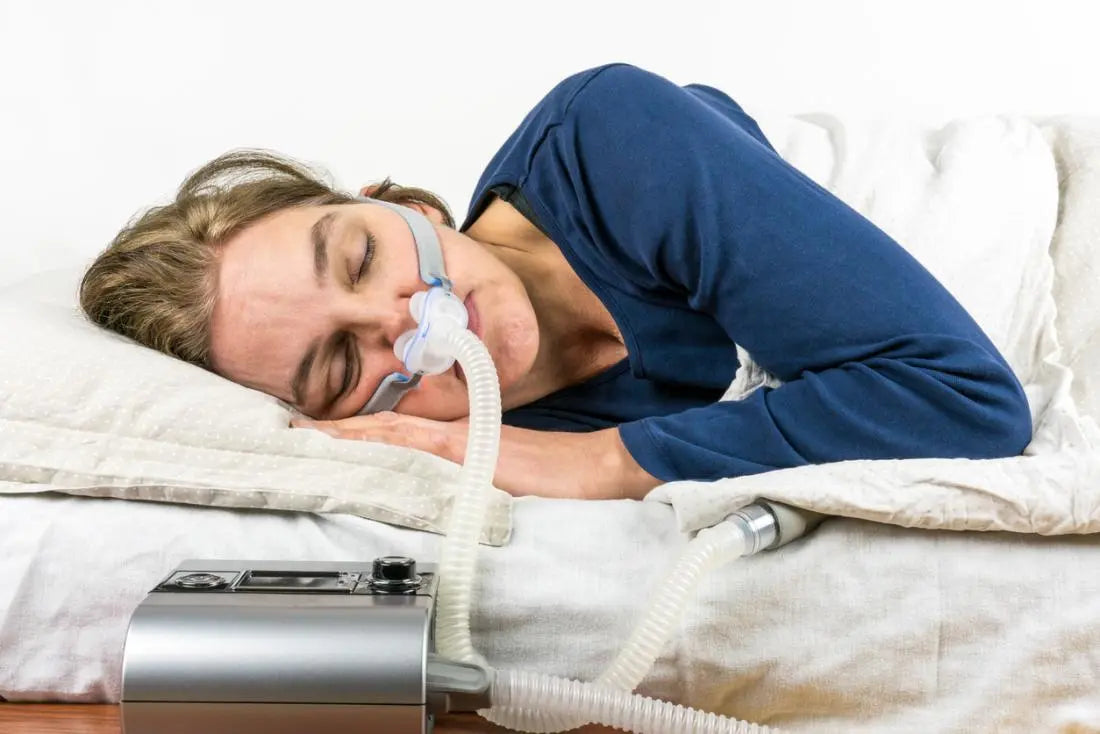What Is Hypopnea?

Hypopnea is a sleep-breathing disorder that is characterised by shallow breathing during sleep. Unlike sleep apnea, in which breathing is completely obstructed for periods of time during the night, hypopnea syndrome doesn't fully obstruct breathing, but it does cause a "reduction in airflow lasting 10 seconds or more."
There is a close relation between hypopnea and sleep apnea. These two sleep disorders are characterised by similar symptoms and similar health outcomes and risk factors.
So, like sleep apnea, hypopnea syndrome is also both a serious and highly treatable condition. What's important is to discover it in time and start treatment immediately so that it doesn't leave negative effects on your health.
Knowing more about it sure helps to spot it earlier, which is why we’ll cover the basics of this sleep disorder.
What Are the Symptoms of Hypopnea?
The symptoms of hypopnea are very similar to the ones of sleep apnea, which is why they get mixed up sometimes.
The most common symptoms of the hypopnea syndrome are:
- Feelings like you're choking during sleep;
- Loud snoring;
- Not feeling fresh in the morning;
- Excessive daytime sleepiness;
- Morning headaches;
- Mood disturbances;
- Sexual dysfunction.
Types of Hypopnea
There are three types of hypopnea syndrome: obstructive hypopnea, central hypopnea, and mixed hypopnea. Their symptoms are pretty similar, and it's often difficult for doctors to distinguish what kind of type of hypopnea a patient has.
Obstructive Hypopnea
Also called obstructive sleep apnea-hypopnea syndrome (OSAHS), this type is characterised by a partial blockage of the sleeper's airways. It's normal that our throat muscles and tissue relax during sleep, but in people with OSAHS, the relaxed tissue causes the throat to narrow to the extent that it restricts airflow.
Central Hypopnea
Central hypopnea is known to reduce breathing rather than airflow. It's similar to central sleep apnea and mostly has to do with issues with the brainstem. It can also be caused by certain medications.
Mixed Hypopnea
As the name says, this is a type of hypopnea syndrome that combines obstructive hypopnea and central hypopnea. This means that the reasons for it can also be due to partial blockage of airways and reduced breathing.
Causes and Risk Factors of Hypopnea
Hypopnea can have different causes. Some can be genetic, meaning some people just have a narrower jaw and bigger tonsils, which also automatically makes the airway narrower and harder to breathe during sleep. Hypopnea in children, for example, is largely due to the size of their tonsils.
The reasons behind this condition are, again, similar to the ones responsible for sleep apnea. Brain stem damage and the use of opiates can play a large role in developing both sleep apnea and hypopnea.
Risk Factors
The risk factors for developing hypopnea syndrome can be:
- Smoking
- Obesity
- Family history (genetics)
- Short lower or upper jaw
- Hypothyroidism (the thyroid gland produces not enough thyroid hormones)
- Being male
- Ehlers-Danlos syndrome (a condition affecting connective tissues
Why Is Hypopnea Dangerous?
Untreated hypopnea can negatively affect your health in different ways. It can exacerbate or be a contributing cause of high blood pressure, cardiovascular disease, heart failure, stroke, diabetes, and liver issues.
How Can You Treat Hypopnea?
Luckily, nowadays, there are ways to treat hypopnea and live a healthy life. First, you'll have to get diagnosed, usually done via a sleep study. After this, your doctor will most likely prescribe both lifestyle changes and CPAP therapy.
CPAP (continuous positive airway pressure) therapy means you'll have to get a device that will help ease your breathing during sleep.
Lifestyle changes mean you'll have to stop smoking and limit your alcohol intake, change your sleeping position, lose weight and start exercising regularly.
Conclusion
As you were able to see, the name might be a bit scary, but hypopnea is treatable. The sooner you diagnose it, the better. Don't wait for your symptoms to get worse!
As soon as you notice something's off with your breathing during the night and you notice you've been feeling very tired during the day, speak to your doctor. It certainly can't hurt.
